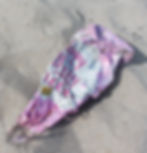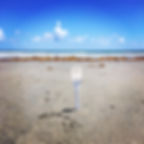Marine Debris.




























Marine debris is any kind of man-made litter that makes its way into the ocean. It can end up there in a number of ways such as people leaving trash on the beach, boaters throwing their garbage over board, and from companies or individuals illegally disposing waste into the ocean.
The most common types of marine debris in order of how much is retrieved from ocean clean-ups include (1) plastic water bottles, (2) plastic bottle caps, (3) plastic bags, and (4) plastic straws. Other typical marine debris found includes paper bags; fishing gear like nets, lines, and crab/shrimp pots; cloth; wood; and pieces of glass, metal, and rubber from a wide range of products.
Scientists estimate that more than 8 million metric tons of plastic alone is entering into our ocean every single year, making that a total of over 5.25 trillion pieces of plastic currently floating around in the ocean. In 5 years, we can expect more debris than fish in the sea!
Unfortunately, plastic in particular is a big concern because it takes an extremely long time for it to decompose in the ocean. Unlike a paper bag that decomposes in only one month, plastic bags and plastic straws can take 1000 years to decompose.
Why is it a problem?
Marine debris is causing some major problems in the ocean that impact wildlife, natural resources, and our quality of life.
Sadly, ocean trash can harm marine wildlife. Over 1,200 species including dolphins, sharks, turtles, and seabirds often mistaken the trash for food, causing them to accidentally ingest items like plastic bags, plastic caps, bottles, and fishing line. The plastics can cause irritation or damage to their digestive system, leading to malnutrition or starvation. Plastic has been found in 59% of sea birds like albatross and pelicans, in 100% of sea turtle species, and more than 25% of fish sampled from seafood markets around the world. This is a real problem for us as well because as marine life eat the plastic, these pollutants work their way up the food chain and onto our plate.
Wildlife can also get entangled in the debris. Nets, ropes, line, or other fishing gear; packing bands; rubber bands; balloon string; six-pack rings; and a variety of other marine debris can wrap around marine life and cause injury, illness, suffocation, starvation, and even death.
Another concern is that plastic debris attracts and concentrates pollutants like PCBs (polychlorinated biphenyls) from surrounding seawater, posing a contamination risk to those animals that then ingest it. Scientists continue to study the impacts of that contamination on fish and shellfish, and as well as the possible impact it may have on human health.
Marine debris can also break, smother, damage, and destroy important marine habitats, such as coral reefs. Many of these habitats are critical to marine ecosystems and the survival of many species.
How YOU can help!
Addressing the problem of marine debris in the ocean begins with our actions on land. We need to reduce, reuse and recycle plastics and other materials and cut back on single-use disposable products like plastic water bottles and plastic utensils.
Cleaning up the beaches is also critical to keeping all kinds of waste out of the ocean. Join one of our beach cleanups to help make a difference!